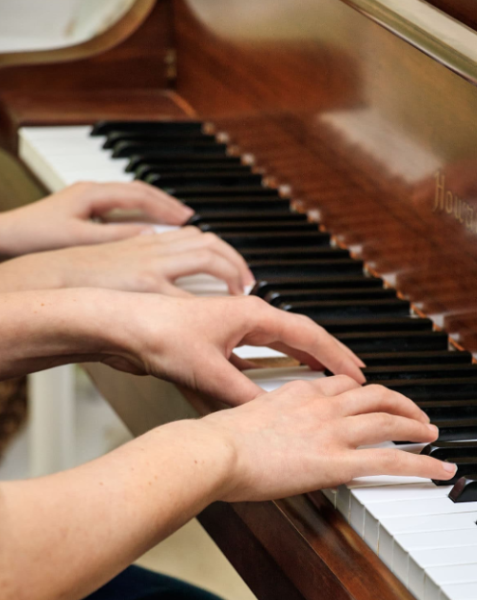Why Hebrew should be a language offered at East

Hebrew letters on Torah parchment.
After my bat mitzvah, a coming of age ceremony for Jewish girls that occurs when they reach the age of 12, I became less active in my Jewish community. In my Hebrew school, little Hebrew was taught. As such, I recently joined a Jewish youth group called BBYO to continue to explore my Jewish heritage in a fun and interesting way. Yet I still feel a cultural disconnect because I do not know or speak Hebrew, the language of the Jewish people.
Many Jewish students can identify with this culture disconnect. It’s for that reason, among others, that Hebrew should be a language course offered at East. Its addition to the East course selection would be especially beneficial considering the school’s large Jewish community.
“Having Hebrew introduced is good for international business as well as introducing Jewish culture in a majority Christian society,” said Stella Heimerling (‘26). “I think it would be cool to learn Hebrew because I have Jewish family members that I feel a disconnect to, I feel that learning Hebrew may help me form a connection with them.”
Nevertheless, not just Jewish students are interested in learning Hebrew at school. In talking with multiple East students, I learned about how some are interested in taking Hebrew as a course even despite not practicing Judaism.
For starters, East students recognize the importance of language as a tool to communicate with others. They also recognize a Hebrew course would increase cross-cultural connections between Jews and non-Jews.
“Language is important for learning and appreciating culture. It allows people to express themselves and build relationships with one another,” said Caroline Handler (’25).
As Handler said, learning new languages breaks down language barriers and better enables cross-cultural communications and relationships.
Those opposed to adding Hebrew as a course offering at East may be quick to point out that there are just over 200,000 Hebrew speakers in the United States. They may also claim that students should learn languages more widely spoken in the country, such as Spanish.
Critics need to understand, though, that language is a special way to connect with those around you. Jewish life has a large presence in the Cherry Hill community, meaning there are many environments for students to practice speaking Hebrew. These places could include local synagogues, Jewish community centers, and stores. Hebrew education could prove particularly useful to students seeking to visit Israel or to better connect with their Jewish heritage.
Ultimately, adding Hebrew as a language course to East could be very beneficial to both Jewish and non-Jewish students.








